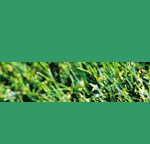
HR CLEAN Regional Conference:Are Plastic Bags Sacking the Environment? Eighty individuals gathered in Smithfield to discuss an invasive and migratory species: the plastic bag. HR CLEAN organized a regional conference, �Are Plastic Bags Sacking the Environment?� to discuss the impacts of the plastic bags on the environment. Government workers, citizens, recycling and retail workers participated in the conference to brainstorm ideas on innovative regional efforts to balance commerce, convenience and the environment. Turtles, fish, sharks, and other aquatic life are endangered by plastic bags and particles every day. Christina Trapani, Virginia Aquarium Stranding Team, spoke at the conference. Her presentation showed slides of wildlife which had ingested or become entangled in plastic bags. Farmers are also impacted by plastic bags. Littered bags become entangled in equipment, degrade the quality of cotton crops, and kill livestock when ingested. A regional group has been working for over a year to find a solution to the problem. At the conference, the Plastic Bag Advisory Council shared a Pilot Program they developed for Isle of Wight. The program will focus on recycling and public education and will be implemented once funding is received. The conference generated articles in the Daily Press, the Virginian-Pilot, and the Smithfield Times. Presentations (PDF) The Effects of Plastic Debris on Turtles and Marine Animals Christina Trapani Plastic Bag Impact in Virginia: Impact on Agriculture Nathan O'Berry News Articles
Ban
is bagged; push is on to control plastic bags SMITHFIELD Legislation to ban plastic bags statewide died this year, leaving the problem still littering the landscape. Environmentalists, city recycling officials and retail and waste industry representatives gathered Friday to answer the question "Are Plastic Bags Sacking the Environment?" The summit was sponsored by HR Clean, a regional environmental group that's part of the Hampton Roads Planning District Commission. Marine science experts described the suffering of whales, dolphins and sea turtles that strand themselves on Virginia's shores with plastic debris in their digestive systems. Nathan O'Berry, an agent for the Virginia Cooperative Extension of Isle of Wight County, talked about the cost to cotton farmers from lightweight sacks that get stuck in cotton stalks and contaminate finished cotton. On Wednesday, O'Berry said, he drove a four -mile stretch of Foursquare Road in Isle of Wight and found 63 plastic shopping bags that had blown into farm fields. He collected them and brought them in a box to the summit Friday. "I'm not here to talk all bad about plastic bags," O'Berry, who specializes in crop and soil sciences, said as he emptied out wads of white plastic in front of the audience at The Smithfield Center. "I think they're very useful. I think they have a place in the world." Isle of Wight County has become ground zero in the plastic-bag debate in Virginia since a county supervisor learned of farmers' concerns and sought a ban last year. Retailers rallied to fight the move, and the General Assembly declined to pass legislation allowing the county to institute a ban. That led a group of business representatives and local officials to form the Virginia Plastic Bag Coalition to find ways to better control plastic-bag use. In the past year, the coalition has developed a pilot program focusing on public education to encourage schoolchildren, as well as adults, to recycle. The coalition's retail members persuaded legislators to withdraw bills this year that would have banned bags statewide. The coalition now hopes to get state funding for Isle of Wight's program and similar efforts in Alexandria and Henry County, said Margaret Ballard, vice president of advocacy for Retail Alliance, the trade group for Hampton Roads merchants, and its legislative lobby arm. "The problem is very challenging," Ballard said at the summit Friday, acknowledging retailers' role. "We are a source of the plastic-bag litter."
|
